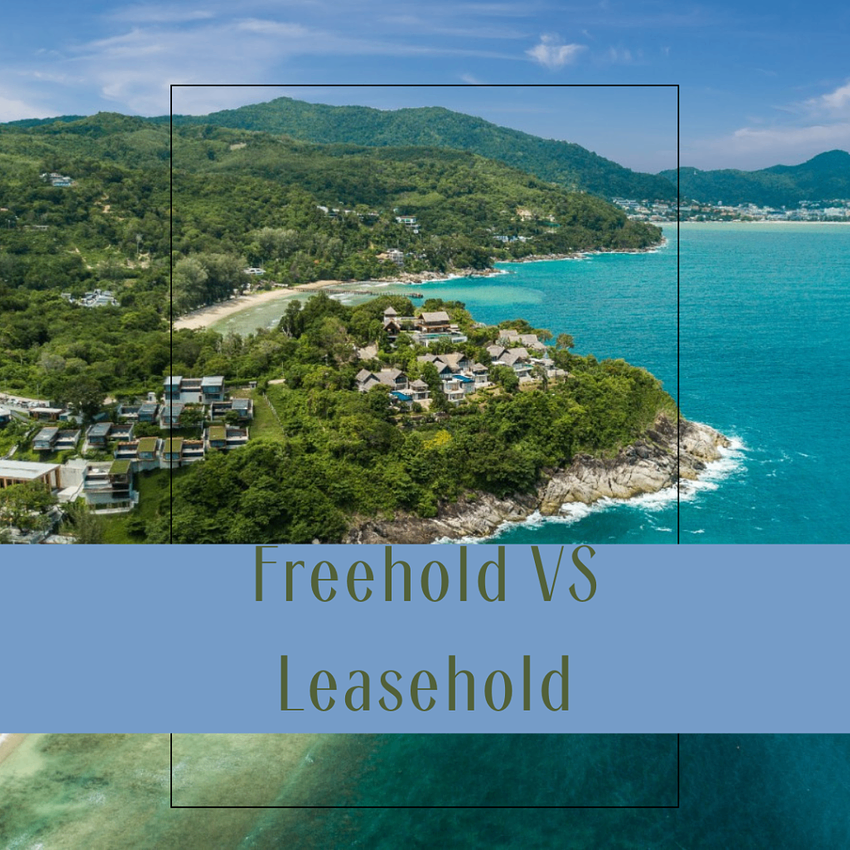What is the difference between Freehold and Leasehold when buying an apartment?

When buying a condo in Phuket, you face a choice: Freehold or Leasehold type of ownership? Let's take a look at what each of them means.
In each project, no more than 49% is owned by foreigners. These percentages are referred to as the Foreign Freehold Quota.
The remaining 51% is owned by Thai citizens. Do Thai citizens want to buy real estate in such quantities? It is a big question.
It is unprofitable for developers to miss the chance to sell 51% of their real estate. The law prohibits selling it to foreigners in full possession, but it can be rented out. Leasehold is the right of long-term rent.
If you rent an apartment, then formally it remains the property of the developer, by default a _Thai_ company. This is not against the law and allows the developer to make a profit, and you - to use the selected apartments.
30 years of lease - this period is specified in the contract. And in the addendum to the contract, an extension for the next 30 years and another 30 years is indicated. As a result, you have an agreement with additions for a total period of 30 + 30 + 30 years, which looks impressive. And you need to pay everything at once, for the first long lease for 30 years and the next two.
You pay rent for 90 years in advance, and there is no other option.
The contract does not specify a second and third term extension because it directly contradicts Thai law. Such a long-term lease would be treated as full ownership, so the contract can be canceled if both extensions are indicated on the contract itself. If it is canceled, then you will not be able to use the purchased apartment even for the first 30 years.
Will you be able to use the property for the second and third time in 30 years? It depends on who you signed the contract with.
If this is a person, then in the event of his death and accession to the rights of the heir, you may lose the right to rent for the second and third terms.
If it is a Thai-registered company, then you can lose the right to rent in a number of cases. For example, in case of bankruptcy of a company, change of shareholders, or sale of a company. The developer may have a sincere intention of giving you a 90-year right of use at the time of signing the contract, but circumstances may change over time.
Can you defend the right to use leased real estate for 90 years in court? Unfortunately no.
In what case would you be interested in buying a Leasehold?
The deal is so good that even if it's only 30 years old, it's worth it. If you already manage to extend the lease - it will be a nice bonus.
You are sure that the developer will continue to be on the market and keep the promise (Actually, the obligation to renew for 30+30 years is only a promise, and the court will not protect your rights if it is not fulfilled).
You are at an age when 30 years of living in this apartment is more than enough for you, and you are interested in this particular condominium, and freehold is not available.
Should you be interested in buying real estate in full ownership? Of course, and here's why:
You receive a title deed registered with the local land department. You own what you have acquired, and your children and grandchildren have the right to inherit.
Full ownership also increases the chances of resale later.
Is Leasehold cheaper than Freehold?
If you buy at the pre-sale stage or before the start of construction, you can purchase apartments as Freehold. The price is lower and there are plenty to choose from.
What remains is a difference in taxes when registering a transaction with the land department, and it is significant. For leasehold it is 1.1%, for freehold it is 6.3%. Usually taxes are paid in half by the seller and the buyer.
Full ownership, Freehold, is more expensive, but it's better to overpay than face trouble later.
You might be interested in the article on the Foreign Ownership Quota - and it's here.
.jpeg)

